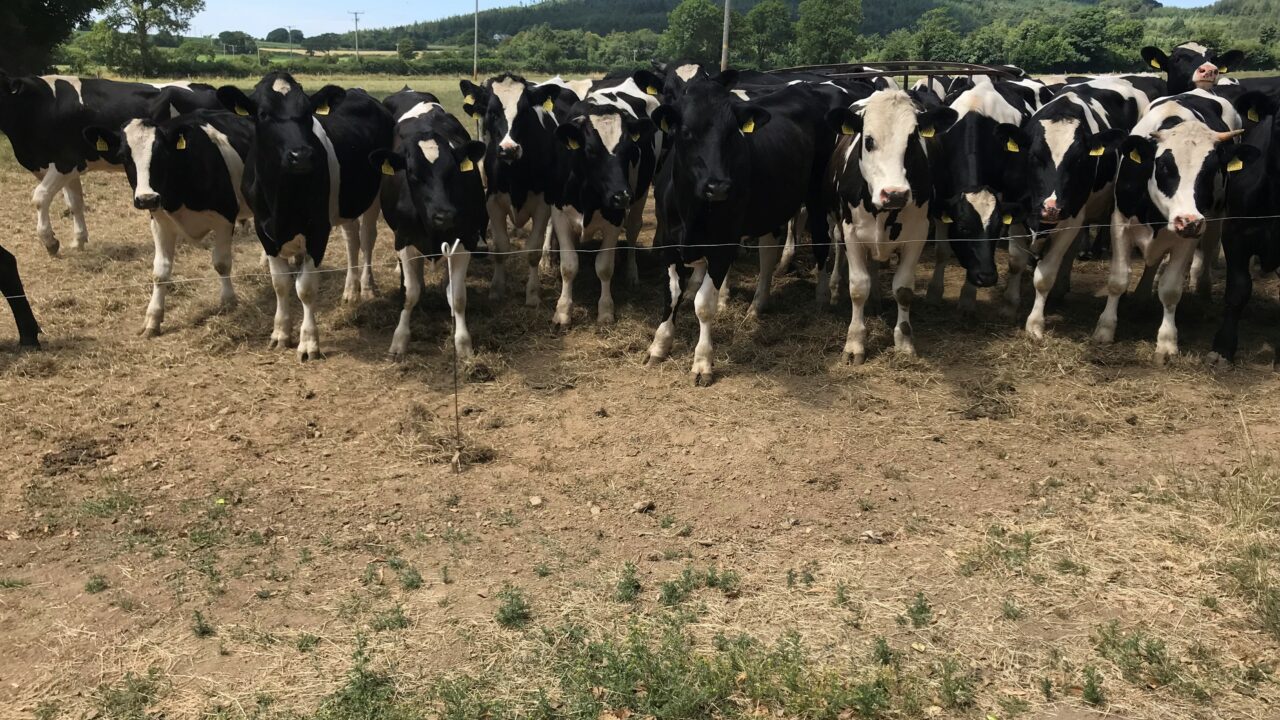Fianna Fail is calling on the Government to “urgently implement” its newly-published 12-point action plan to avert an animal and farmer welfare crisis later this year as a result of the shortage of fodder in the country.
The opposition party’s agriculture spokesperson, Charlie McConalogue said: “The reasons for the fodder crisis are well known – storms before Christmas, excessively wet weather in the spring and, until recently, a prolonged dry and warm spell.
He said it is crucial that the Minister for Agriculture, Food and the Marine, Michael Creed, takes “immediately initiates all appropriate interventions available” to help mitigate what is going to be a “very serious fodder crisis”this winter.
The financial implications cannot be overstated – with farmers’ income down due to poor crops and reduced prices while also facing into paying high prices for concentrates and very scarce fodder supplies.
“Central to our proposals is the establishment of a nationally financed hardship fund to aid farmers who are under particular financial pressure to cope with the difficult months ahead. This is crucial and can be done if the will is there from the minister and the Government as a whole,” he said.
Sleepless nights
Jackie Cahill, food and horticulture spokesperson, added: “Farmers are at their wits ends. Fodder that was being stored for use later this year, and in early 2019, is being used to feed animals right now.
“They have no idea how they will feed their animals later this year and it is causing many a sleepless night and severe mental health issues.
Our proposals are rooted in common sense, and an understanding of the needs of farmers. Minister Creed must take his head out from the sand and start taking decisions.
If a response doesn’t start right now, farmers and rural Ireland will have a very difficult and traumatic year ahead,” concluded Cahill.
- The Government must immediately bring forward a nationally financed hardship fund to help farmers who have been severely impacted by the unfolding fodder crisis. This would provide funding to aid farmers sourcing feed and fodder;
- Opening the €25 million low-cost Brexit loan scheme for farmers and fishermen as announced in October 2017. Farmers’ cash flow is already under severe pressure and low-cost credit is critical to helping them survive. Financial institutions need to be fair with farmers and permit loan restructuring without penalty where necessitated;
- Minister Creed must call in processors and retailers and make it clear that the severe weather conditions are not used to drop the price paid to farmers for produce;
- It is paramount that all avenues are used to increase live exports;
- The minister must seek to open new markets for 18 months – plus beef. These animals should be finished off indoors but there is a worry that there won’t be the feed needed;
- Extensions must be permitted to fertiliser and slurry application dates to allow grass to keep growing and for farmers to keep animals out longer;
- Tillage farmers must be incentivised to grow catch crops such as kale and turnips rather than planting more winter cereals. This will deliver more food for animals later in 2018;
- Start importing and storing fodder from overseas to prepare for winter and spring, while the Fodder Import Scheme must be reopened;
- ANC payments should be brought forward to September, while higher rates for advance payments made for 2018 (70% advance for BPS payments must issue in October and 85% advance for GLAS payments in November);
- With feed orders taking over a week to deliver, driver regulations should be modified temporarily to enable feed deliveries to reach farmers on time;
- GLAS rules must be adapted in order to enable farmers conserve fodder from areas under the low-input grassland, while permitting a second-cut to be harvested from traditional hay areas;
- Dedicate a budget to the Department of Agriculture’s Early Warning System, which supports farmers at local level before any welfare problems occur.
